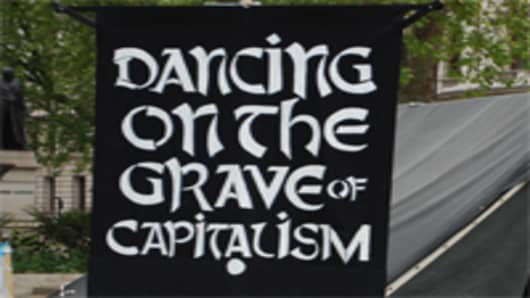The Greek problemis everyone’s problem and the economic climate could still turn cryogenically cold, according to Charlie Morris, the head of absolute return at HSBC Global Asset Management.
"Forty percent of global (gross domestic product) comes from countries running fiscal deficits of 10 percent or more," Morris told CNBC Tuesday. "The response from the authorities has been to wag the dog by its tail. In a normal recession, the economy falls and assets fall too. This time, and thanks to stimulus, the economy has fallen yet asset prices have largely recovered."
This "has given the illusion of recovery when it is actually, much slower than it should be," he said. "We live in an era of upside-only capitalism, whereby the politics of our time enjoys the free markets during the summer, but cannot bear to face the winter."
But the story will play out and offer the chance of big returns, although timing will be the key, Morris said.
"The divergence between the real and the financial markets represents a standoff and it is assets held in weak hands that prolong the agony," he said.
Morris said he thinks an evangelist might hold the answer for investors.
"As Billy Graham said, 'comfort and prosperity have never enriched the world as much as adversity.'"
"The sooner that we face and accept our demons, the sooner those good things will come," Morris said.
"Our core positions are in government bonds, cash generative multinationals that are growing in the new world, gold and world-leading hedge funds," he said. "All of these are well placed to prosper in the current environment."
UBS disagrees with this position.
"There will be no double-dip in the US, there will be no double-dip in China and there will therefore be no double-dip in Europe," Stephane Deo, the head of European economic research at UBS, told CNBC.
Deo said risky assets will have a strong second half.
"Markets are likely to remain volatile given heightened uncertainty, but underlying earnings growth is likely to exceed investor expectations, setting the stage for a stabilization and modest recovery of risk assets in the second half of 2010," he said.
Deo and the UBS team are overweight stocks in the US, Asia and Japan and like precious metals and soft commodities. They are underweight inflation-linked and normal bondsand also advise not putting too much money into cash.
"Market expectations for earnings appear to embed a great deal of investor pessimism already," he said.



